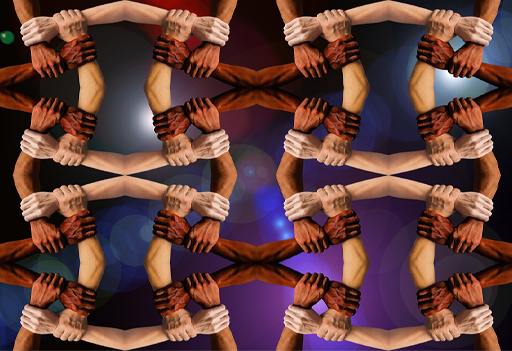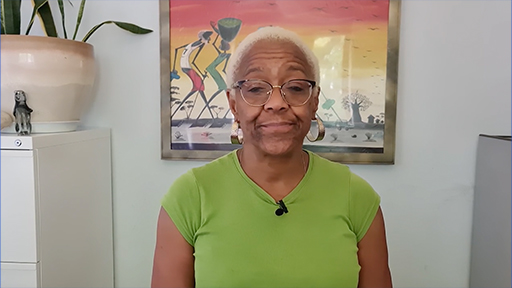3 Powerful solidarity

Giving and receiving solidarity can be a joyous experience. Part of the reason why it is so powerful is that it can be experienced in and against other forms of power that are less positive. The feminist philosopher Amy Allen (2017) has developed a framework that situates solidarity amongst two other kinds of power – the three playing off one another in work and social life. Explore these below to find out more.
| HighlightedPower-over | Refers to the ability of the powerful to affect the actions and thoughts of others, including through racist ideology. |
|---|---|
| HighlightedPower-to | Is the capacity to act and exercise agency. This is a positive enactment of power that aims to enhance equity for diverse groups of people. |
| HighlightedPower-with (solidarity) | Is about how groups of people build alliances that enable and strengthen power-to. Key to developing ‘power with’ is solidarity. |
Solidarity means not only providing others with your support but the feeling of security, comfort and strength that person gains from knowing that you will always be there to support them. Offering solidarity works both ways – it is relational – meaning that those you support will offer support in return. There is always an element of risk involved – you are showing those in power that you are prepared to make yourself potentially vulnerable to support other people – but in stepping up, you are displaying collective strength. This collective strength can be hard to resist. Solidarity can be crucial in ‘opening up closed spaces’ (Garlington et al., 2019, p. 30). This means that one way in which you can show solidarity is helping others gain opportunities and access. However, solidarity comes with significant challenges. It is a process rather than a settled state. This means that you have to keep working at solidarity for it to remain valuable and valid – if you stop, confidence that someone will offer you support can wane.
Sticking with the process of solidarity can be even more challenging when those you are trying to build solidarity with have different identities and priorities. Under such circumstances you need to work hard to understand where others are coming from, allowing yourself to be open to feeling empathy. Smolović Jones et al.’s (2021) study of building feminist solidarity makes the case that people need to expose themselves to the experiences of others, inhabiting the pressures and challenges of their lives. This process, the authors say, can be difficult and sometimes fraught with conflict, as both parties try to understand and adapt. However, when seemingly different people come together in solidarity, the effects can be powerful, demonstrating diversity as well as collective strength (Collins, 2008). In the case of the Smolović Jones et al. (2021) study, based in Montenegro, common ground was found between largely rural mothers with socially conservative views and professional metropolitan feminists with socially progressive views. They both opposed unconstitutional changes made to the benefits system by the government, recognising in one another a common desire for freedom and dignity (Ng, 1980).
Building power-with, and therefore also power-to, can seem somewhat vague but there are practical ways in which you can build and exercise power-with, as you will explore in the following activity.
Activity 3 Power-with in practice
Watch the following video, where social entrepreneur Yaina Samuels talks about the importance of practices of solidarity in enhancing support and action on mental health. As you watch, note some of the practical ways in which we can offer solidarity to people suffering from mental health problems.

Transcript: Video 2 Yaina Samuels – Solidarity in supporting action on mental health
Comment
Yaina Samuels uses her experience in working in mental health to articulate why power-with in practice requires earning trust of the people leaders work with. Yaina suggests techniques that can be used, including: outreach in the communities, building up rapport overtime, responding to invitations to attend community events and maintain the trust once the trusting relationships develop.
